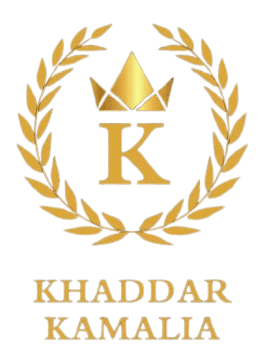Kamalia Khaddar
The Extraordinary Quality of Khaddar: A Pride of Pakistan
Understanding Khaddar: The Fabric of Tradition
Khaddar is a remarkable traditional fabric that embodies the rich textile heritage of Pakistan. This robust, handwoven material has its origins rooted deeply in the country’s history, with its production dating back centuries. The process begins with the spinning of yarn from natural fibers, predominantly cotton, using traditional spinning wheels known as charkhas. Artisans meticulously spin the fibers to create a strong yet pliable thread that is essential for weaving. This attention to detail in the spinning process is crucial in determining the quality and texture of the final product.
The weaving of Khaddar is a labor-intensive craft typically carried out on handlooms, where skilled weavers apply age-old techniques passed down through generations. The result is a fabric that boasts exceptional durability, making it suitable for various climatic conditions. Unlike synthetic fabrics, Khaddar has a unique texture that provides warmth in winter and breathability in summer, a characteristic that appeals significantly to consumers seeking comfort and functionality in their clothing.
Moreover, Khaddar serves as a canvas that showcases intricate designs and patterns, often reflecting the cultural motifs of different regions in Pakistan. This authenticity not only underscores the artistic value of Khaddar but also highlights its role in preserving local craftsmanship amidst the era of mass production. Purchasing Khaddar thus becomes not just a fashion choice but a conscious decision to support the artisans and sustain traditional weaving practices, fostering an appreciation for this cultural treasure.
In conclusion, Khaddar is much more than merely a fabric; it represents a significant cultural heritage and a testament to Pakistan’s history of craftsmanship. Its unique characteristics and sustainable production practices make it a source of pride and a symbol of identity for many Pakistanis.
Delivering Quality Khaddar Across Pakistan
In the dynamic landscape of textile production, ensuring the delivery of superior quality Khaddar throughout Pakistan is of paramount importance. Manufacturers employ a multi-faceted approach to distribution, utilizing various channels such as local markets and online platforms. This strategic incorporation allows for a broader reach, effectively catering to diverse customer preferences across urban and rural areas. Online sales avenues have particularly surged in popularity, facilitating access for customers who may not be able to procure Khaddar from physical stores.
A key component of delivering high-quality Khaddar lies in stringent quality assurance methods. Raw materials for Khaddar are meticulously sourced to ensure that they meet established standards. Skilled artisans, who are often trained through generations of tradition, play a vital role in maintaining the quality and authenticity of the fabric. Their expertise not only ensures superior craftsmanship but also helps preserve the traditional weaving practices that are integral to the cultural heritage of Pakistan.
Moreover, adherence to production standards is essential in the weaving industry. Many brands have implemented quality management systems that monitor the entirety of the production process, from initial sourcing to the final product. This commitment to excellence has led to the emergence of several successful brands that have made a significant impact in the market. These companies have garnered a reputation for prioritizing quality and customer satisfaction, reflecting a deep commitment to their clientele and the local economy.
By delivering high-quality Khaddar and supporting traditional practices, manufacturers not only enhance the customer experience but also uplift local communities. The flourishing of this local industry plays a crucial role in promoting economic development while ensuring the craftsmanship of Khaddar continues to thrive in modern times.
